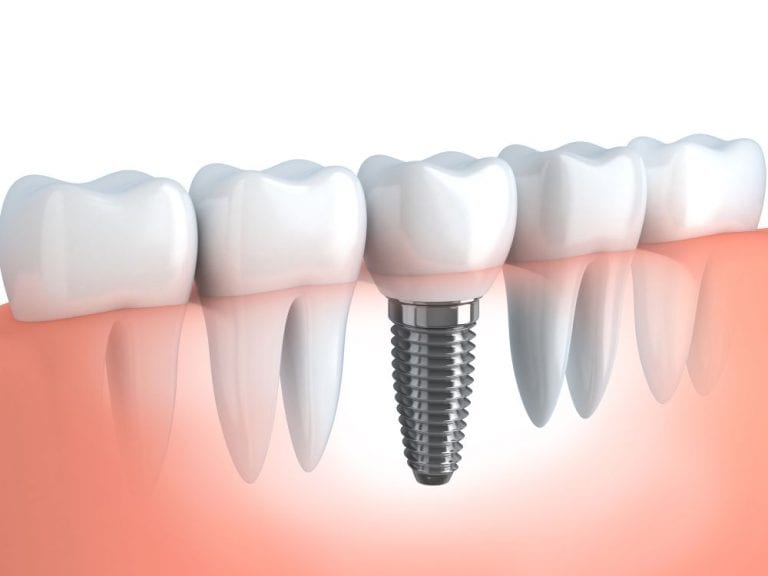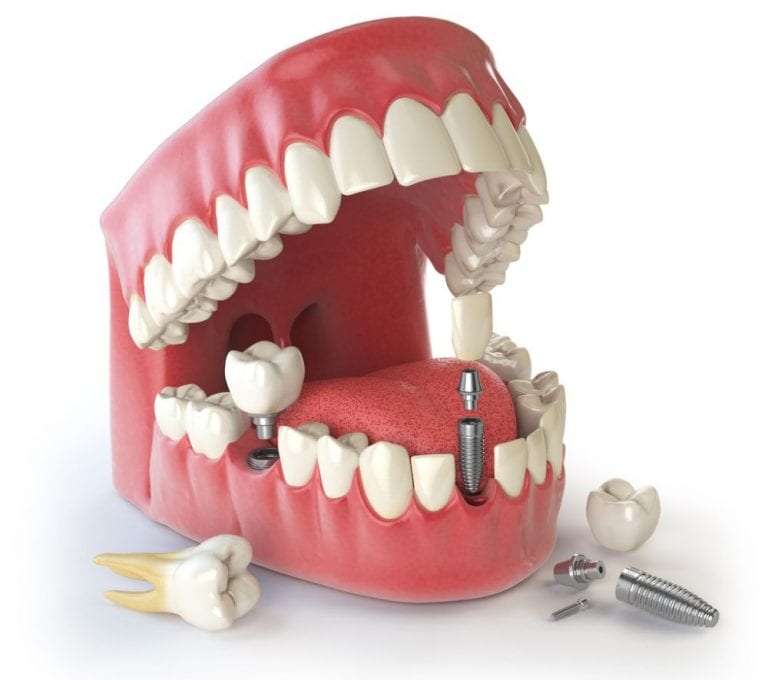According to recent statistics, approximately 70% of adults between the age of 35 and 44 years have at least one tooth missing due to accidents, gum disease, tooth decay, or dental fractures. While this is a common phenomenon, it’s not a must to live with missing teeth. Nowadays, there are several good alternatives. The most common options are dentures and dental implants.
Dentures are basically fake teeth, and while their quality has significantly improved over time, they are not appropriate for everyone. They are often prone to slipping out of place while speaking or eating, which can be quite embarrassing in public. Additionally, partial dentures have the potential to cause decay or infection in other healthy teeth when not fitted properly. Nonetheless, dentures might be appropriate for people with weak or unhealthy jawbones and gums. But what if you hate dentures?

image source: alafayafamilydentistry.com
Dentures vs Dental Implants
When choosing between dentures as a solution to restore a beautiful smile and getting dental implants for beautiful teeth, you should carefully compare the advantages and disadvantages of both options. Typically, dental implants have far more advantages over dentures.
To begin with, dental implants help to preserve the remaining jawbone and maintain the facial structure. On the other hand, dentures decrease the quality of the jawbone and can result in further deterioration of the structure of the face. Secondly, dental implants function and feel like natural teeth, while dentures tend to feel unnatural and fake. Additionally, implants are not only strong and stable, but they are also securely fixed to the jaw and fit very comfortably. But people who wear dentures often have to deal with the discomfort of the dentures slipping and moving around. What’re more, implants help to restore the normal chewing ability while dentures restrict chewing capacity and the user often has to stay away from certain foods. Lastly, implants are a long-term solution and they are easy to care for and clean, but dentures often need to be relined or remade after some time and need to be taken off on a regular basis for cleaning.
How about the Cost?
Dentures are a less costly alternative for teeth replacement. However, when you factor in accompanying costs like buying adhesives or fixatives, replacements, and cleaning solutions, the cost can substantially increase. Additionally, when you consider the fact that that dentures normally have to be replaced every 10-15 years, while the average lifespan for implants is approximately 20 to 25 years, it’s clear why implants are more preferable as a long-term investment.

image source: maplebrookdental.ca
What is the Downside of Getting Dental Implants?
One of the significant disadvantages with getting dental implants is that they cost more upfront compared to dentures. In fact, this is one of the principal reasons why a lot of people opt for dentures without taking the time to investigate other benefits of implants. Nevertheless, when you think of the extra costs associated with having dentures, implants will certainly be the best investment option, which is worth the initial cost. Furthermore, dental implants help to prevent bone loss in the jaw and fit as well as function more comfortably.
If your teeth are missing and your jaw and gums are healthy, dental implants may offer you greater benefits than dentures. With proper oral hygiene, implants can last for over 20 years without the need for replacing. The best thing about implants is that they are ideal for both people who have a few teeth missing or several teeth missing. As long as you have healthy jaws and gums, implants can serve as a better solution for tooth replacement than dentures.
